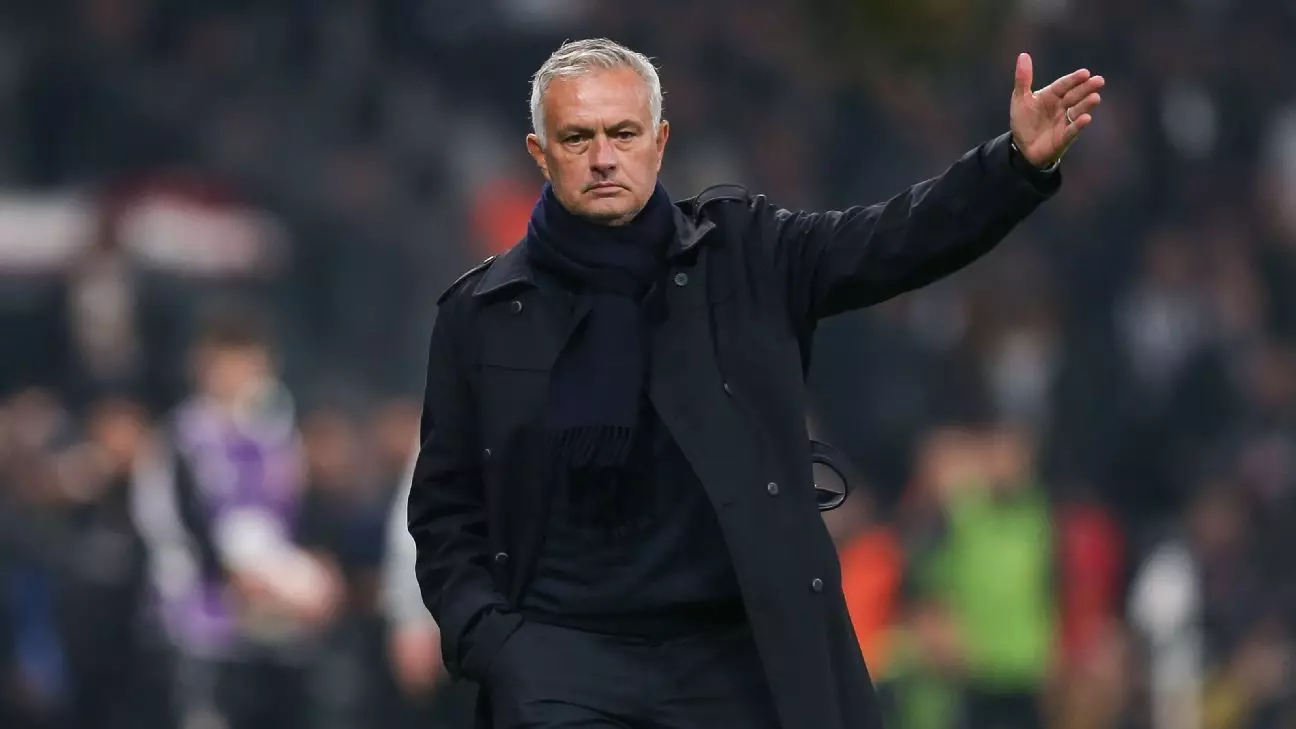The world of football is no stranger to intense rivalries, be it between clubs or the managers who lead them. The clash between José Mourinho and Pep Guardiola has become one of the most documented rivalries in the sport, characterized by a series of spats that often resonate beyond the pitch. Recently, a new chapter in their contentious relationship unfolded, drawing attention to issues surrounding fairness in football—a topic that resonates deeply in the world of sports.
Mourinho and Guardiola’s animosity can be traced back to their intertwined histories at Barcelona and Real Madrid. Mourinho’s tenure at Madrid from 2010 to 2013 saw him move against Guardiola’s Barcelona during what some would call the pinnacle of their respective careers. The psychological warfare between the two was palpable, as each sought to outmaneuver the other’s tactics, both on and off the field. Guardiola’s recent comments, where he suggested that Mourinho harbors a desire to see Manchester City relegated due to ongoing financial misconduct investigations, served as an ignition point for Mourinho to defend his stance on the legitimacy of footballing successes.
This interplay of words reveals the depth of their rivalry—what may seem like banter often carries underlying truths. Guardiola’s sharp rebuttal hints at a broader narrative where the reputations of coaching giants become entangled with their clubs. Mourinho’s insistence on seeking “justice” rather than desiring revenge illustrates the complexity of their relationship. It is not merely about results but also about how those results are achieved and the regulations governing them.
In his response, Mourinho emphasized the notion of justice rather than punishment. He pointed towards Financial Fair Play (FFP) rules, which are often criticized for inconsistencies in their enforcement. Many clubs find themselves restricted under these regulations while larger clubs are seemingly able to skirt these rules without significant repercussions. This sentiment resonates with many in the football community who argue that the current financial landscape benefits a select few while stifling smaller clubs, which often struggle to make ends meet. Mourinho articulated this frustration, citing his experiences at Roma, where financial limitations hampered his team’s potential.
This line of reasoning lends weight to Mourinho’s claims: he isn’t merely stirring the pot but raising legitimate concerns about the governance of football. His argument emerges from a place of genuine care for the sport rather than a desire to undermine Guardiola’s achievements. In his own words, he described himself as a “football man” passionate about fairness, a sentiment that might resonate with fans and professionals alike.
Despite the fiery comments that have become synonymous with their rivalry, Mourinho attempted to downplay the personal animosity with Guardiola in his recent address, stating there are “no problems” between them. This distinction is crucial; it illustrates how professional rivalries can exist even when there is personal respect and acknowledgment of each other’s contributions to the game. Mourinho reminisced about their time together at Barcelona, where he served as an assistant to Guardiola, emphasizing their mutual admiration despite the competitive friction that exists now.
This statement prompts one to consider the nature of rivalry in sports—it’s often fueled by passion and a shared history rather than straightforward enmity. This complexity is what makes the Mourinho-Guardiola saga captivating for fans, while also shedding light on the real issues that plague professional football today.
While Mourinho’s statements spark conversations around financial misconduct and justice within football, Guardiola’s comments on his future with Manchester City provide a contrasting angle. Guardiola has been very clear about his commitment to City, stating he doesn’t envision managing another club once he leaves. His focus appears singular, highlighting his intention to remain rooted in one place, whether due to personal preference or the demands of the modern game. This contrasts with the historical trajectory of managerial careers where frequently changing clubs has become the norm.
The intricacies of the Guardiola-Mourinho rivalry intertwine the personal and the professional, the achievements and the regulations governing football today. Both figures command respect and drive discussions that often transcend the boundaries of the pitch. Their rivalry serves as a lens through which the challenges in football governance—and the very spirit of competitive fairness—can be examined deeply. Such narratives breathe life into discussions around the game, capturing the essence of what it means to love football while grappling with its inherent complexities.
